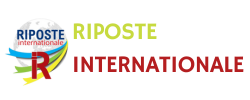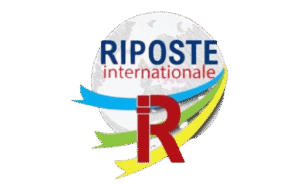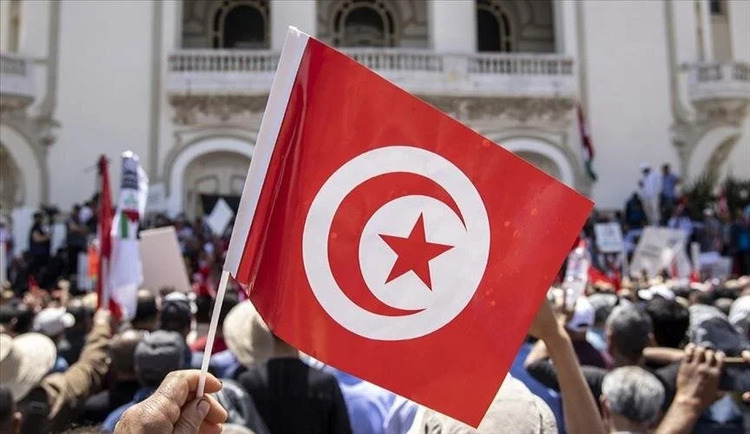Tunisia: an increasingly repressive regime
Increasing attacks on freedom of expression
and political activity
It is clear that President Kaïs Saïed is operating on two fronts: on the one hand, he is using the justice system to eliminate his political opponents by manipulating reality, accusing them, on the basis of serious accusations, of plotting against him. These trumped-up accusations are often crudely staged. Having a stranglehold on the justice system enables him to imprison his detractors for months, even years, without them having the right to a trial.
On the other hand, the Tunisian President also abuses his authority to prevent independent thought, freedom of expression and creative work. Under his rule, a simple fresco criticizing previous presidential positions becomes a serious crime.
The facts date back to last July, when Rached Tamboura, a young student at the National Calligraphy Center in Tunis, was arrested for painting a fresco denouncing the President’s racist stance towards sub-Saharan migrants, a stance also criticized by a number of anti-racism organizations. Rached found himself accused of offending the Head of State and defamation, under article 67 of the Code of Criminal Procedure. Initially, the Court of First Instance sentenced him to two years’ imprisonment, a verdict later upheld by the Court of Appeal.
The same applies to a number of prominent figures, many of whom are now in prison. Any hope of release is lost in endless labyrinths of fabricated cases designed to silence them once and for all.
The charges against Ms. Abir Moussi, detained since last October, are extremely serious: attempting to undermine the President of the Republic. When the Senior Investigating Judge finally decided to refer her to the Correctional Chamber of the Tunis Court of First Instance, a decision which would imply a reduction in the sentence incurred, or even her release, a new investigation based on Decree 54 was launched.
This famous decree (54) is used by the authorities to undermine freedom of expression and democracy, like a sword of Damocles brandished over the head of anyone who dares to exercise their right to express themselves.
Rached Ghannouchi, leader of the Ennahdha movement, is also in the crosshairs: The Correctional Chamber specializing in corruption cases at the Tunis Court of First Instance has sentenced him to three years’ imprisonment, with immediate effect, for handling foreign funding.
This is the second ruling against R. Ghannouchi. He is currently in prison on the basis of a judgment handed down in May 2023, for inciting disturbances against state security, following a complaint lodged by one of the security services unions.
In short, it’s clear that the recent trials are a tool, enabling Kaïs Saïed to consolidate his authoritarian project. In other words, the more he strengthens his grip on power, the more he entrenches his project, as the date of the presidential elections approaches, and this despite the fiasco of all the previous polls organized since July 25, 2021, which were characterized by a participation rate of no more than 12% – a resounding failure of the « popular » character of the political project preached by the Head of State.
The Committee for the Respect of Freedoms and Human Rights in Tunisia (CRLDHT), which has consistently denounced all the violations and excesses of the Tunisian regime:
· demands the release of the young Rached Tamboura, Abir Moussi and Rachid Ghannouchi, as well as of all political prisoners, and calls for fair trials offering rigorous legal guarantees and respecting the independence of the judiciary;
· expresses its willingness to respect freedom of expression and the right of all political forces, without exception, to engage in peaceful political practice;
· considers that all the politically-motivated trials and those targeting freedom of expression that have taken place in recent years, in such a context of personalization of power, constitute a breach of the very foundations of a fair trial, due to incessant interference in the judicial system and the daily threat of dismissal hanging over judges. Indeed, most of the structures elected by judges have been attacked, and many have been dismissed;
· calls, once again, on all political and civil forces to overcome their differences, unite and cooperate to restore democracy in Tunisia;
· also makes an urgent appeal to the forces of democracy and freedom in the region, and on the international level, to be attentive to the danger threatening democracy in Tunisia, a source of complete political desertification and a prelude to the perpetuation of an authoritarian regime for years or even decades to come. A danger that threatens not only Tunisia, but the entire region.
Comité pour le Respect des Libertés et des Droits de l’Homme en Tunisie
February 5th, 2024


